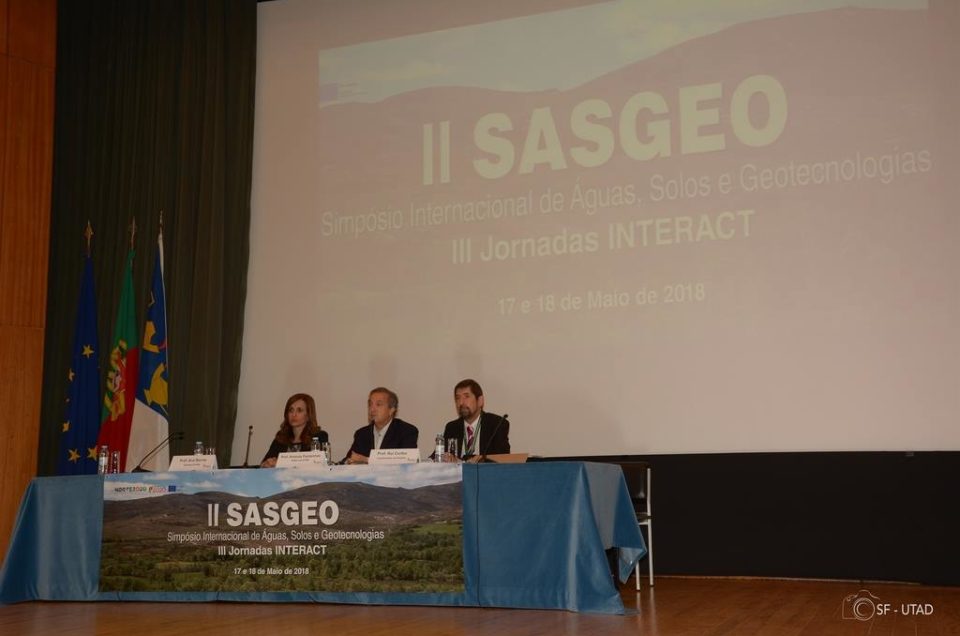International Symposium highlighted Water, Soil and Geotechnology

Held on 17 and 18 May in UTAD, the International Water Symposium, Soil and Geo. This event was part of the III Conference INTERACT ( Integrative Research in Environment, Agro-Chains and Technology ), a project that has a team of 80 researchers and staff divided into three lines of research: Innovation for Sustainable Agrifood Chains (ISAC); Bioeconomy and Sustainability (BEST) and Sustainable Viticulture and Wine Production (VitalyWine). Admission is free to all interested parties.
On May 17, an event was held in the Aula Magna with assistance from the dean of UTAD and Ana Barros, director of CITAB, Research Center representing the project’s research center, and three speakers from universities. In the afternoon, the event continued in the auditorium of the laboratory complex UTAD with 11 interventions of researchers / project fellows and two guest speakers M. Conceição Santos of the University of Porto and Tim Hogg, Director of Platform of Vine and Wine. The second day took place in the same auditorium with 32 oral interventions under the project research lines (ISAC, BEST, VITALITYWINE). Guest speakers are Livia Madureira and John Coutinho, both of UTAD.
The INTERACT Project integrates multiple processes of agroforestry and zootechnical production in the North Region of Portugal also takes into account environmental factors, such as climate change, to maintain the sustainability of crops. Aims to determine the opportunities and production potential based on the local economy, particularly in the field of agri-food based resources in animal production (meat and milk), vegetables, fruits, olives, nuts, wine, forest and native plants, and medicinal plants. Search also a technological development of the region through the development and dissemination of innovation and know-how to increase their competitiveness by increasing the efficiency of production processes and added value, not forgetting to maintain the sustainability of ecosystems, which involves the use of environmentally friendly technologies.
Funded by the Support System Scientific and Technological Research and FEDER funds, this project started in May 2016, lasting three years. Eligible investment is more than four million euros.

























